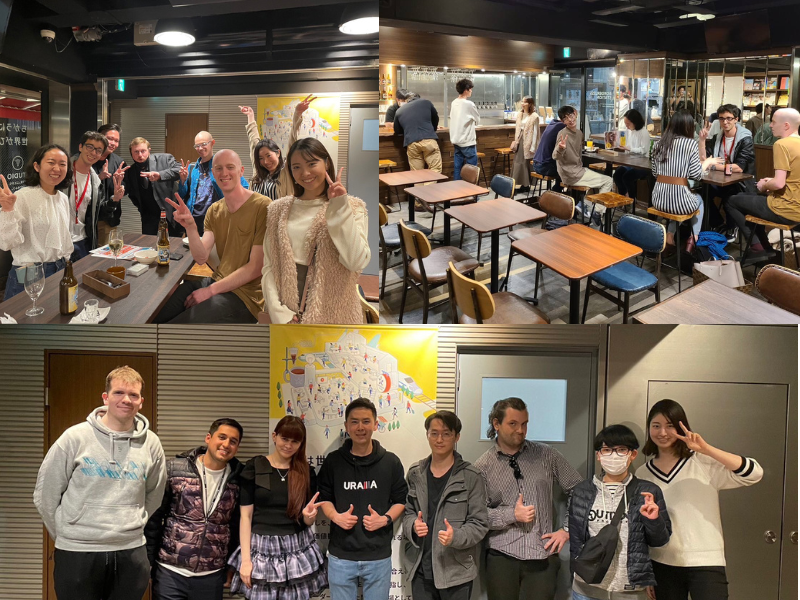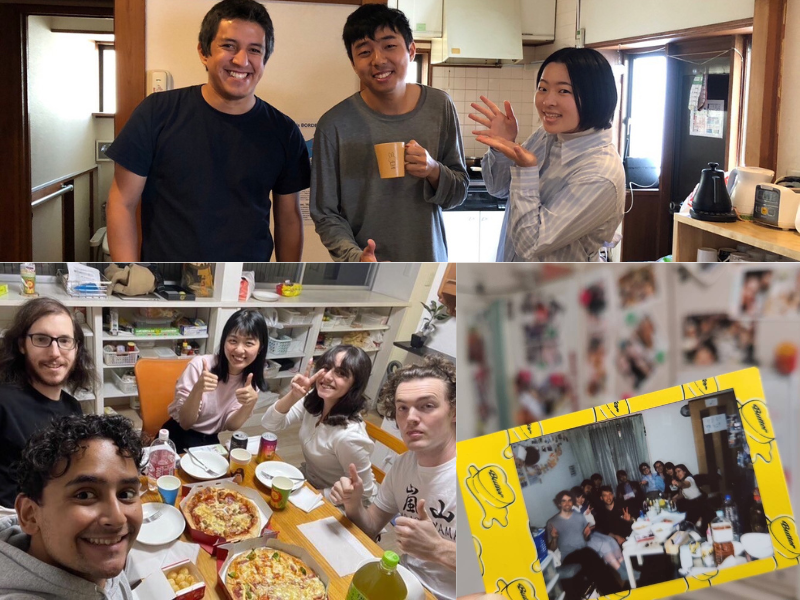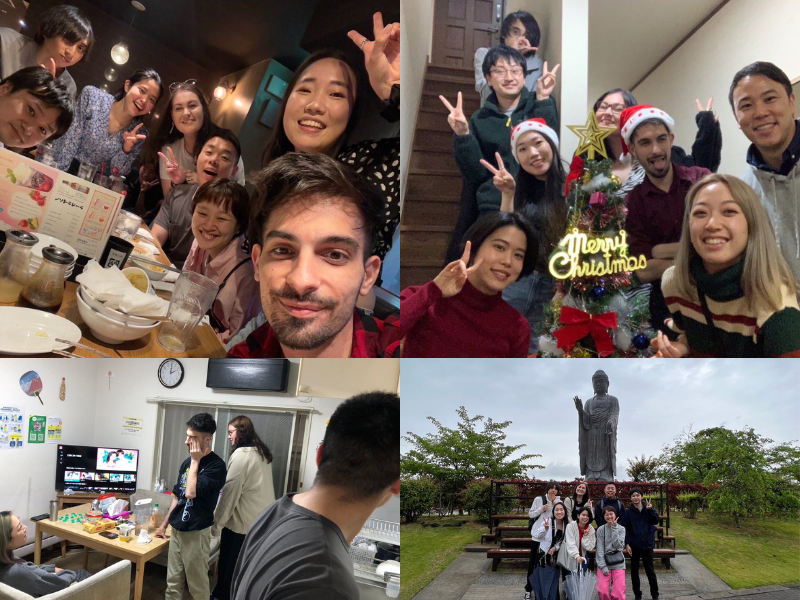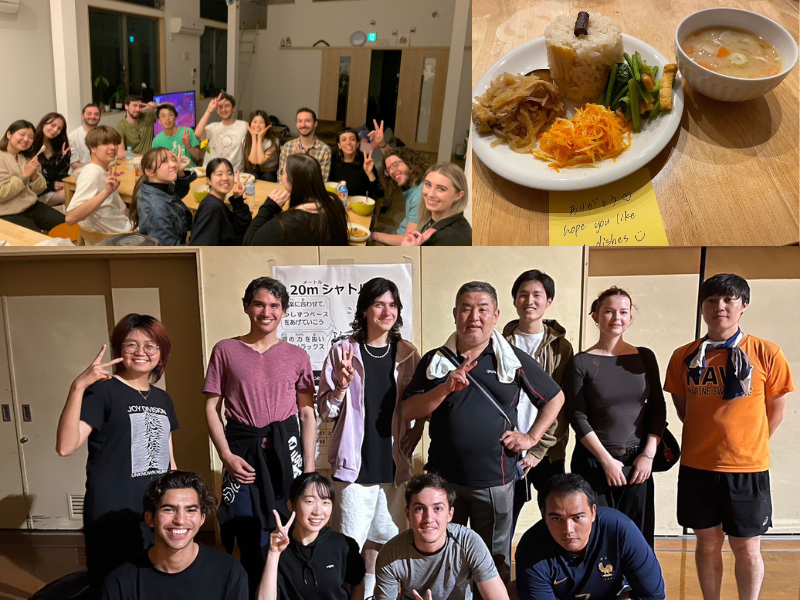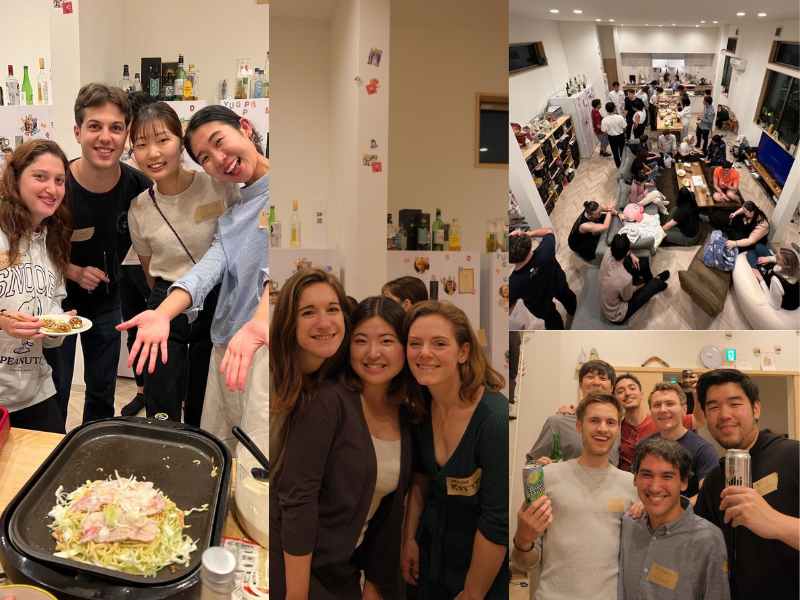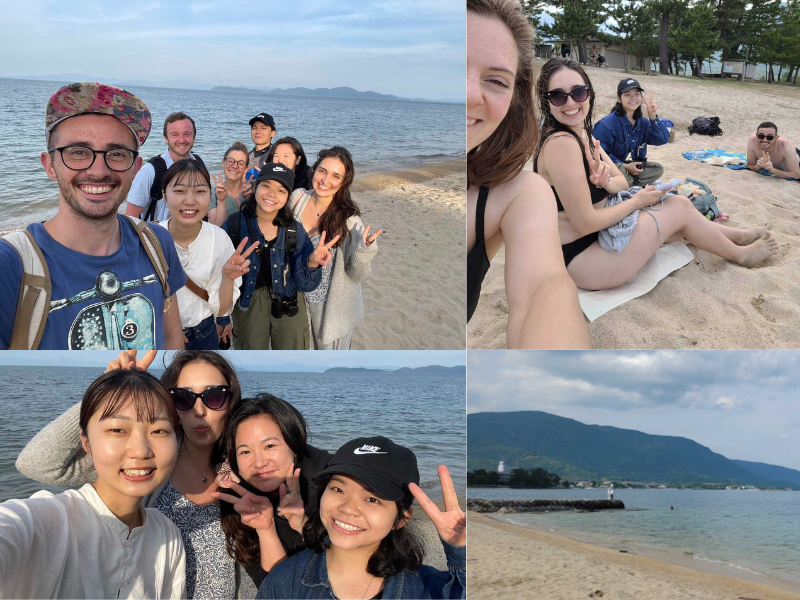Japanese is an incredibly fascinating language to learn. With its unique writing system, rich cultural heritage, and fascinating grammar, it’s no wonder that so many people are interested in learning the language. But where do you begin? With three writing systems to learn, Japanese can seem daunting. However, with the right resources and approach, learning Japanese can be a fun and rewarding experience. In this guide, we’ll take you through the basics of learning Japanese, from the hiragana alphabet to kanji characters. We’ll give you tips on how to stay motivated and how to practice speaking and writing the language. So whether you’re planning on traveling to Japan or just want to explore a new language, this guide will help you get started on your journey to learning Japanese.
Why learn Japanese?

Japanese is a unique and fascinating language that is spoken by more than 127 million people worldwide. Learning Japanese can open up a whole new world of opportunities, both personal and professional. For example, if you are interested in Japanese culture, such as anime, manga, or traditional arts, being able to speak and understand Japanese will allow you to fully immerse yourself in these activities and gain a deeper appreciation for them.
On the other hand, if you are a business professional, knowledge of Japanese can give you a significant advantage in the global marketplace. Japan is the third-largest economy in the world, and many companies are seeking professionals who are fluent in Japanese and can navigate the business culture there.
In addition to cultural and professional opportunities, learning Japanese can also be a fun and rewarding experience. Japanese is a beautiful language with a rich history and vibrant culture. By learning Japanese, you will gain a new perspective on the world and build connections with people from different backgrounds.
Hiragana, Katakana, and Kanji – What’s the difference?
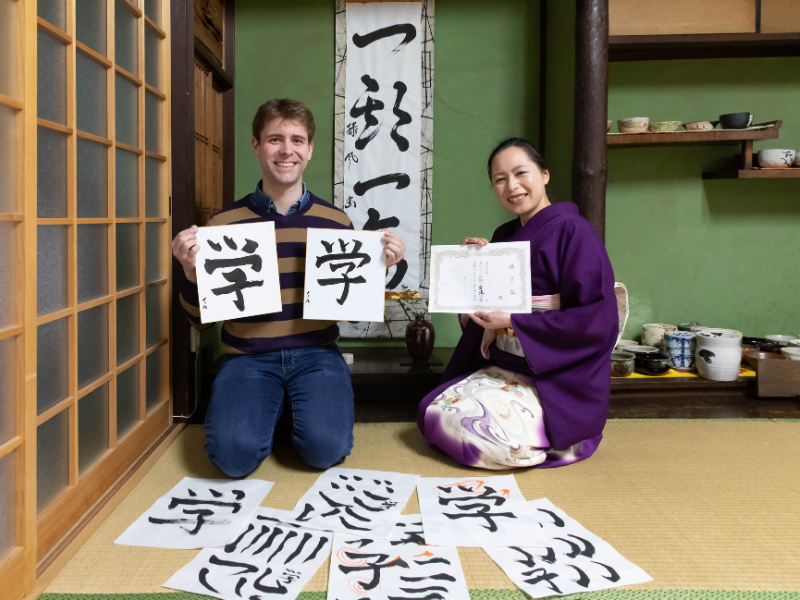
When learning Japanese, it’s important to distinguish between the three writing systems: Hiragana, Katakana, and Kanji. Hiragana and Katakana are both phonetic alphabets, whereas Kanji is based on Chinese characters.
Hiragana is the first writing system that Japanese children learn in school. It is used to write native Japanese words, particles, and verb endings. Hiragana consists of 46 characters, each representing a unique sound in Japanese. Hiragana is usually written in cursive style and is the most basic writing system in Japanese.
Katakana is the second phonetic alphabet used in Japanese. It is used to write foreign words, foreign names, and scientific words borrowed from other languages. Katakana consists of the same 46 characters as Hiragana, but it is usually written in a more angular style. It’s important to note that sometimes the same word can be written in both Hiragana and Katakana, but they may have different meanings.
Kanji, on the other hand, is based on Chinese characters and is the most complex writing system in Japanese. Kanji is used to write nouns, verbs, and adjectives. Each Kanji character represents a concept or idea, and many have multiple readings and meanings. There are thousands of Kanji characters, but Japanese students typically learn around 2,000 characters by the end of high school.
In conclusion, understanding the differences between Hiragana, Katakana, and Kanji is crucial when learning Japanese. By mastering these writing systems, you’ll be well on your way to fluency in the language.
How to master Hiragana
Hiragana is the first alphabet system you should master when learning Japanese. It’s a phonetic script that consists of 46 characters, each representing a specific sound. The best way to learn Hiragana is to use a combination of memorization and repetition techniques.
Start by downloading a Hiragana chart and studying the characters. Then, practice writing each character over and over again until you can confidently write them from memory. Flashcards are also a useful tool for memorizing Hiragana.
Another effective technique is to practice reading and writing Hiragana in context. You can do this by reading simple Japanese texts, such as children’s stories, and practicing writing out the Hiragana characters you see. This will help you remember the characters in a more natural way.
Finally, it’s important to review your progress regularly. Set aside a few minutes each day to practice writing and reading Hiragana. As you become more comfortable with the characters, you can start practicing writing and reading simple Japanese sentences. With consistent practice and dedication, you’ll be able to master Hiragana in no time and move on to learning more complex aspects of the Japanese language, such as Kanji.
How to master Katakana
Katakana is one of the three Japanese writing systems, along with Hiragana and Kanji. It is used to write loanwords from other languages, foreign names, and onomatopoeic words. In order to master Katakana, you need to start by memorizing the basic characters. This can be achieved by dedicating a few hours a week to practicing the characters through drills or flashcards.
Once you have memorized the basic characters, it’s time to start practicing reading and writing. You can do this by reading Katakana words in newspapers, magazines, or online articles. You can also practice writing Katakana words by hand, such as writing out menus or creating your own flashcards with Katakana words.
As you continue to practice Katakana, it’s important to pay attention to the nuances of the writing system, such as the elongated vowel sounds and small characters used to modify sounds. By mastering Katakana, you’ll be able to read and write many loanwords and foreign names used in the Japanese language, which will greatly improve your overall proficiency.
How to learn Kanji
Learning Kanji is a big hurdle for many people who are trying to learn Japanese. Kanji is a set of characters borrowed from Chinese, and it is used in the Japanese writing system to represent words and ideas. There are over 2,000 Kanji characters, and each has its own meaning and pronunciation. This makes learning Kanji a daunting task, but it is essential if you want to become proficient in Japanese.
One of the best ways to learn Kanji is to break it down into manageable chunks. Start by learning the basic strokes and radicals that make up the characters. You can then move on to memorizing the characters themselves. It is important to practice writing each character while also learning its meaning and pronunciation.
Another useful method for learning Kanji is to use flashcards. There are many apps and websites that offer digital flashcards, but physical flashcards can also be effective. Flashcards allow you to study the characters in small doses, which can help with retention.
Reading Japanese texts is also an effective way to learn Kanji. As you read, you will encounter new characters and words, and you can use context to help you understand their meaning. You can also use a Kanji dictionary to look up unfamiliar characters.
Finally, it is important to be patient and consistent when learning Kanji. It takes time to memorize all the characters, but with regular practice and study, you can make steady progress. Remember that learning Kanji is an important step toward becoming proficient in Japanese, so don’t give up!
Tips & Tricks for Learning Japanese

Learning Japanese can seem like a daunting task, but with some tips and tricks, it can be a fun and rewarding experience. Here are some ways to make the process easier and more enjoyable:
1. Immerse Yourself – Surround yourself with the language as much as possible. This includes listening to Japanese music, watching Japanese TV shows and movies, and speaking with native speakers. If your plan is to study Japanese in Japan, Borderless House is a place where residents are 50% of Japanese and 50% from foreign nations, so you can live and interact with Japanese locals on a daily basis!
2. Practice Daily – Consistent practice is key to learning any language. Try to set aside a few minutes each day to study and practice Japanese.
3. Use Apps & Language Learning Websites – There are many language learning apps and websites available that can help you learn Japanese. Some popular options include Duolingo, Lingodeer, and Memrise.
4. Learn the Basics First – Start with the basics of the language, such as hiragana and katakana, before moving on to more complex topics like kanji.
5. Take a Class – If you prefer a more structured approach, consider taking a class. Many community centers and universities offer Japanese language classes. For the online course, IMARI JAPAN offers lessons that are produced by an experienced native Japanese language teacher.
6. Practice Writing – Writing in Japanese can help you remember vocabulary and grammar rules. Practice writing simple sentences and gradually work your way up to more complex writing tasks.
7. Make it Fun – Learning a language should be fun! Incorporate games, quizzes, and other fun activities into your Japanese learning routine.
By using these tips and tricks, you can make learning Japanese an enjoyable and rewarding experience. With consistent practice and dedication, you’ll be on your way to mastering this beautiful language.
BORDERLESS HOUSE TENANTS ONLY▏Special Discount for Japanese courses!

BORDERLESS HOUSE is partnering with IMARI JAPAN to offer our tenants who want to learn Japanese affordable Japanese online lessons!
Imari is a licensed teacher with 6 years of teaching experience, born and raised in Japan. She is passionate about languages and education, she is also interested in learning about different cultures and has traveled to almost 20 countries. Currently, she is a full-time content creator creating educational, fun-to-learn Japanese content for podcasts, YouTube, and Instagram.
The online lessons are teaching casual and formal Japanese to learners of all levels! Please feel free to check here for the detailed price and information.
-Discount to Borderless House tenants!-
・5% discount
Once a week for 3 months (12 lessons)
Twice a week for 3 months (24 lessons)
Once a week for 6 months (24 lessons)
・10% discount
3 times a week for 3 months (36 lessons)
Twice a week for 6 months (48 lessons)
・15% discount
3 times a week for 6 months (72 lessons)
*The lesson will be conducted using Google Meet.
*In the class, students will use an original textbook created by IMARI JAPAN. They will create personalized text that is suited to students’ level and share slides with you as you learn!
Conclusion and next steps
In conclusion, learning Japanese can be both fun and challenging. However, with the right tools, resources, and dedication, it is definitely achievable. Remember to start with the basics, such as Hiragana and Katakana, before moving on to more complex characters like Kanji.
Additionally, immerse yourself in the language as much as possible. Watch Japanese movies, listen to Japanese music, and practice speaking with native speakers when you can. This will not only help you improve your language skills but also give you a better understanding of Japanese culture.
As the next steps, consider finding a language exchange partner, joining a language learning community, or taking a formal class. There are many resources available online and in person to help you continue your Japanese language journey.
Remember that learning a language is a marathon, not a sprint. Take your time and enjoy the process. With consistent effort and practice, you will be able to read, write, and speak Japanese fluently in no time. Ganbatte (good luck)!
We hope this guide to learning Japanese has been helpful for those interested in starting their language journey. Japanese is a beautiful and complex language with a rich cultural background, and we believe that learning it can be a rewarding experience. Whether you are just starting out or have been studying for a while, we hope that this guide has provided you with valuable insight and tips to help you succeed. So, let’s start with “Konnichiwa” (hello) and keep practicing until we say “Sayonara” (goodbye) to this blog post!

 The best part of making udon? It was stepping on the dough!
The best part of making udon? It was stepping on the dough!




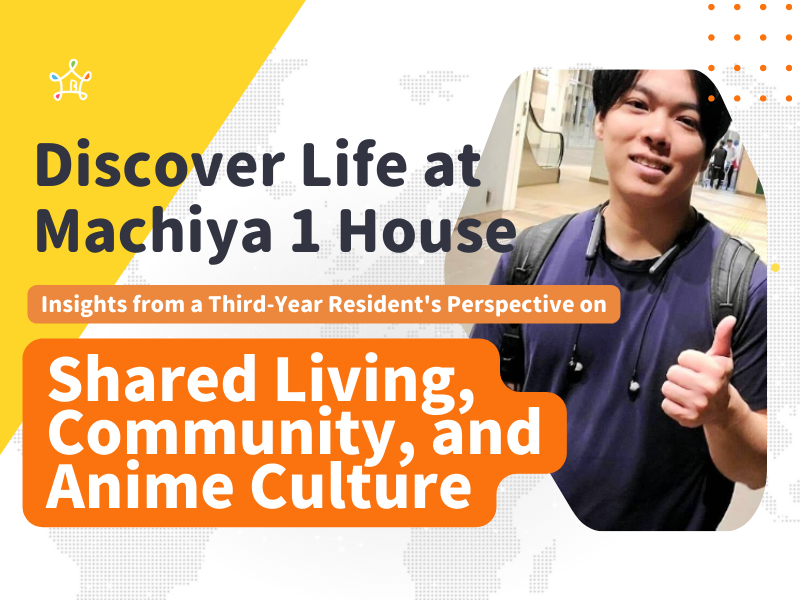
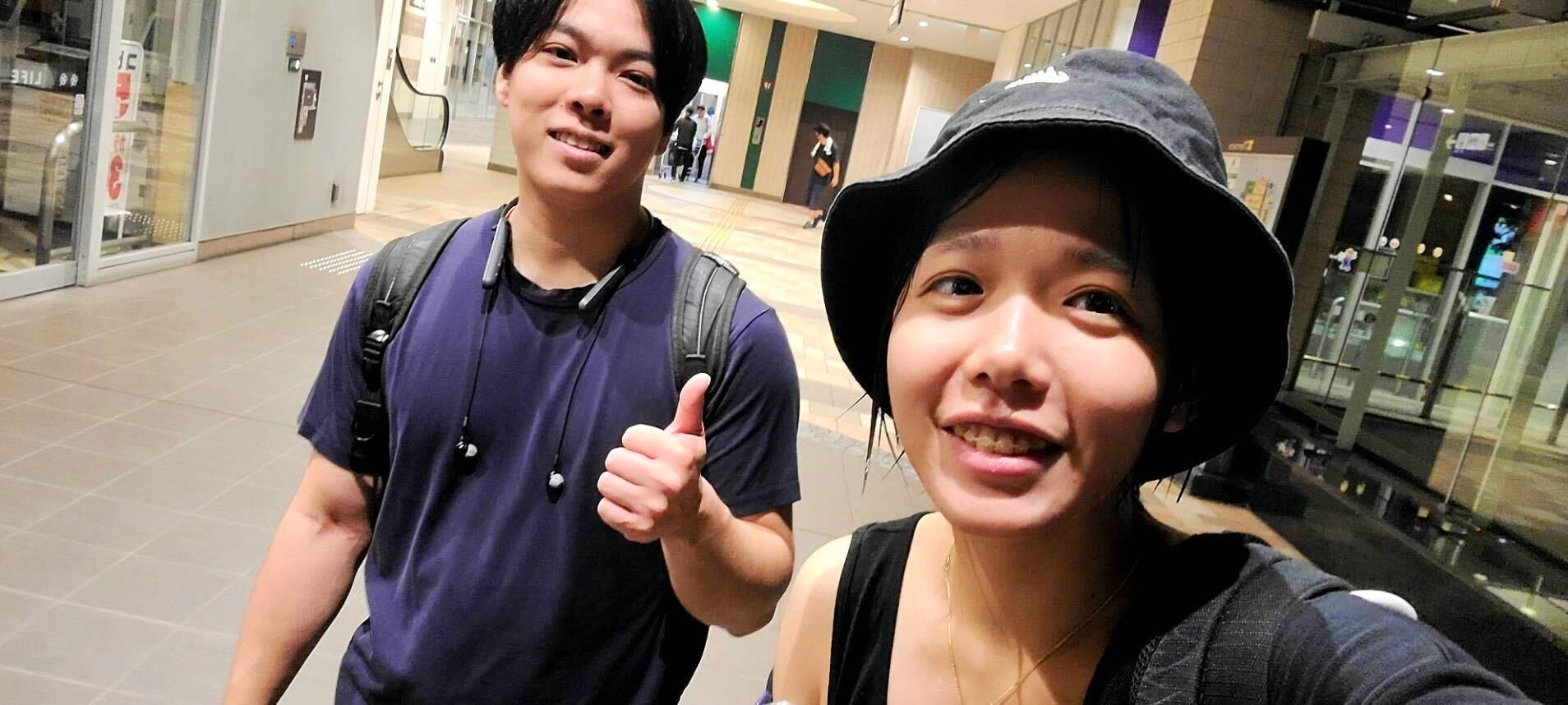
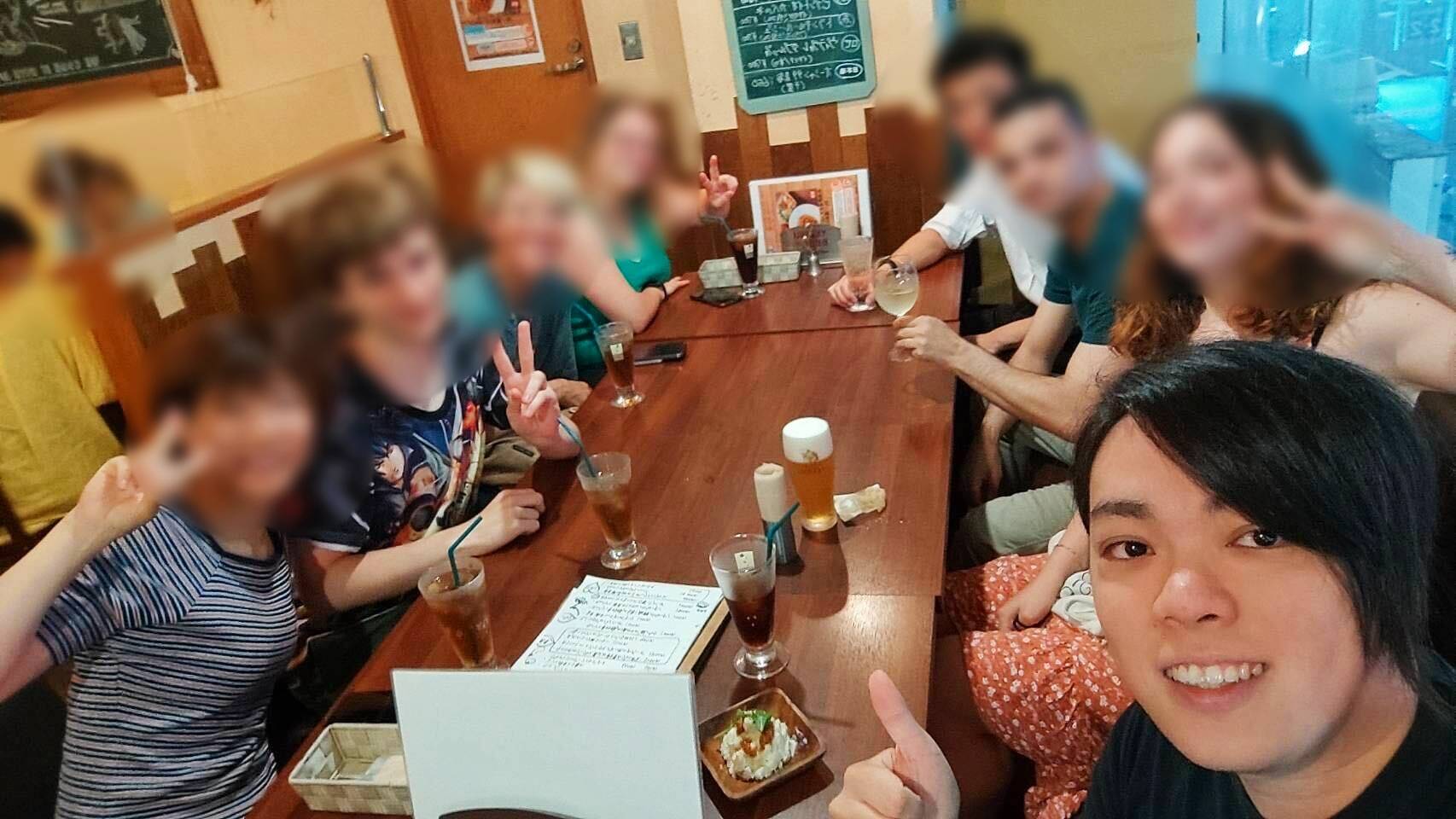 ───Who’s currently living in Machiya 1 House?
───Who’s currently living in Machiya 1 House?
 ───What type of person would enjoy living in Machiya 1 House?
───What type of person would enjoy living in Machiya 1 House?
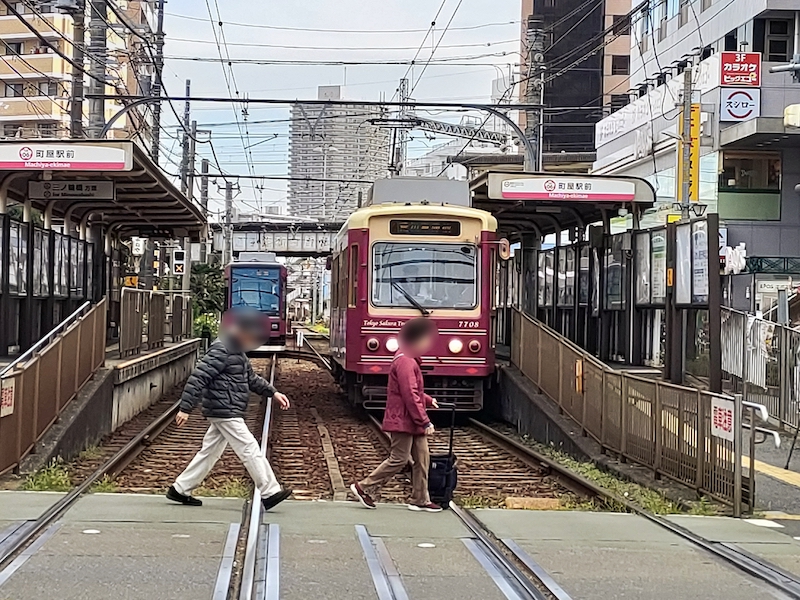
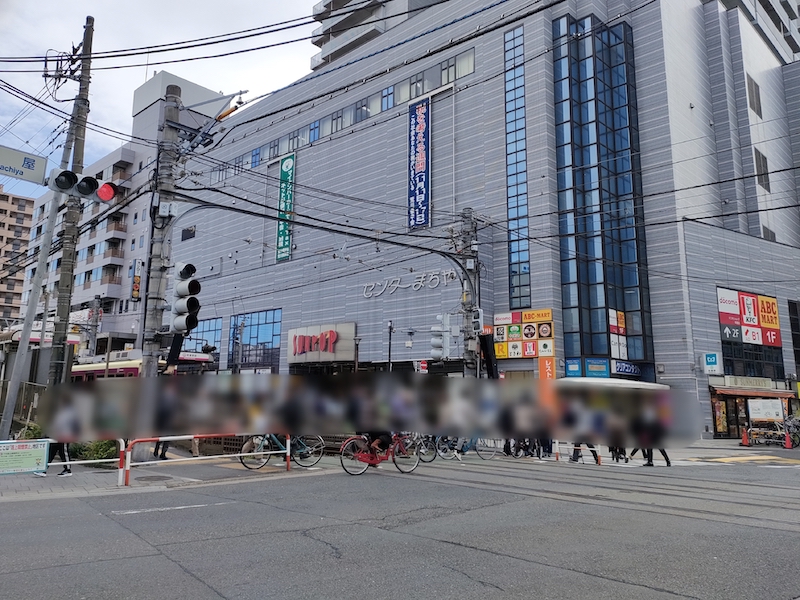
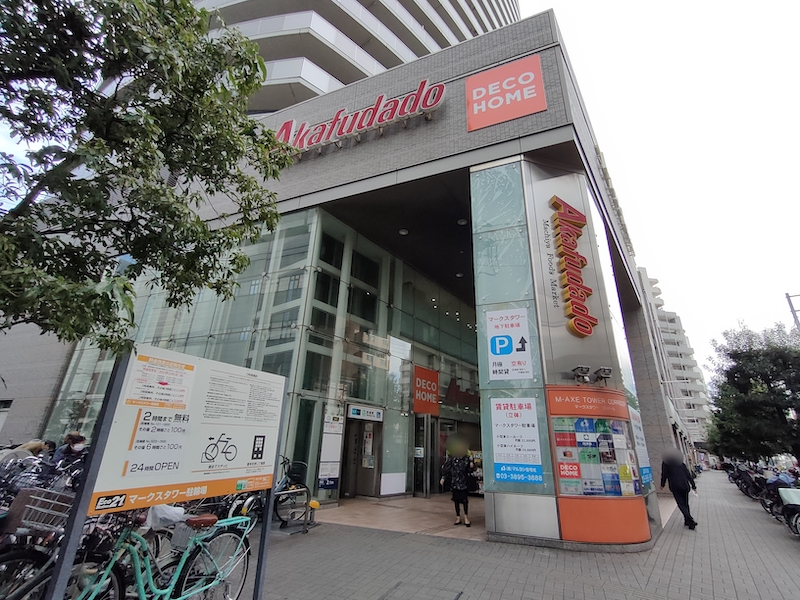
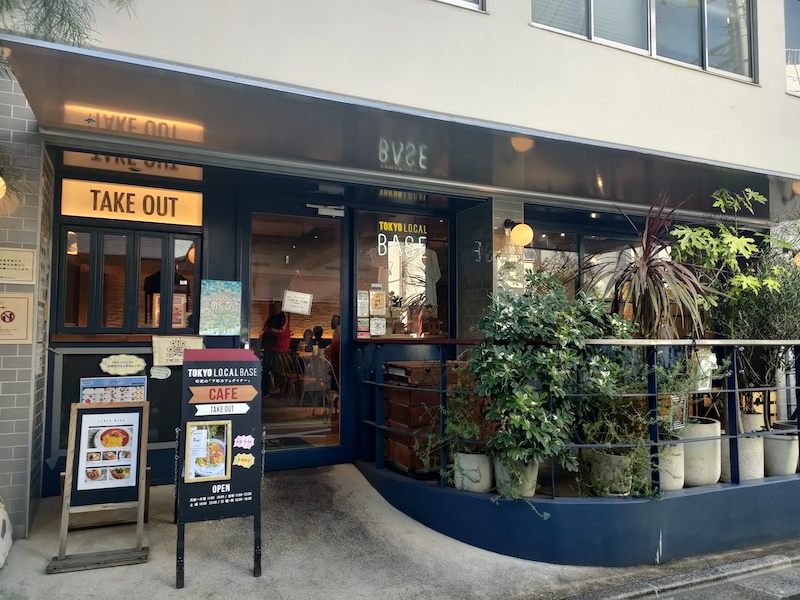 A mere 3-minute stroll from Machiya Station brings you to TOKYO L.O.C.A.L BASE, easily identifiable by its neon “CAFE” sign on a concrete facade. Located off the main street in a serene area, this trendy café offers a delightful menu, with a focus on tasty pasta dishes. When I visited during lunchtime, the place was lively with local customers, including moms with kids.
A mere 3-minute stroll from Machiya Station brings you to TOKYO L.O.C.A.L BASE, easily identifiable by its neon “CAFE” sign on a concrete facade. Located off the main street in a serene area, this trendy café offers a delightful menu, with a focus on tasty pasta dishes. When I visited during lunchtime, the place was lively with local customers, including moms with kids.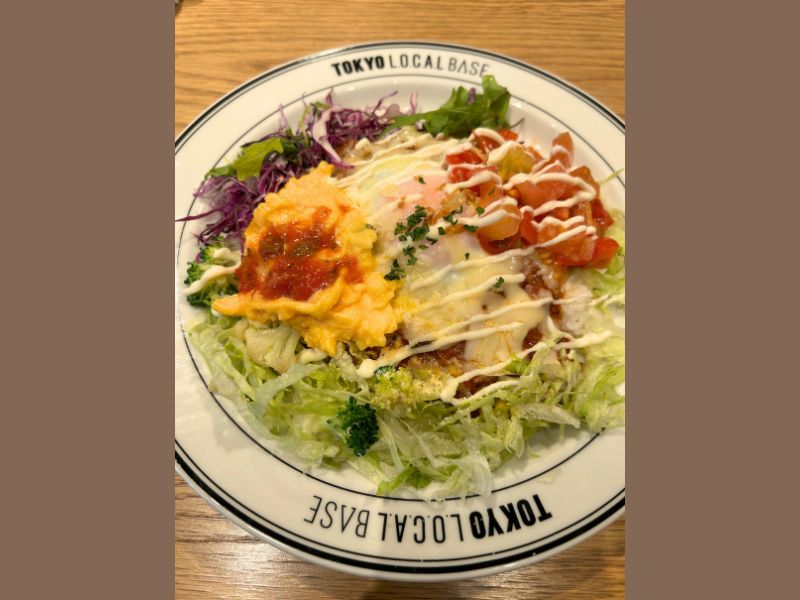
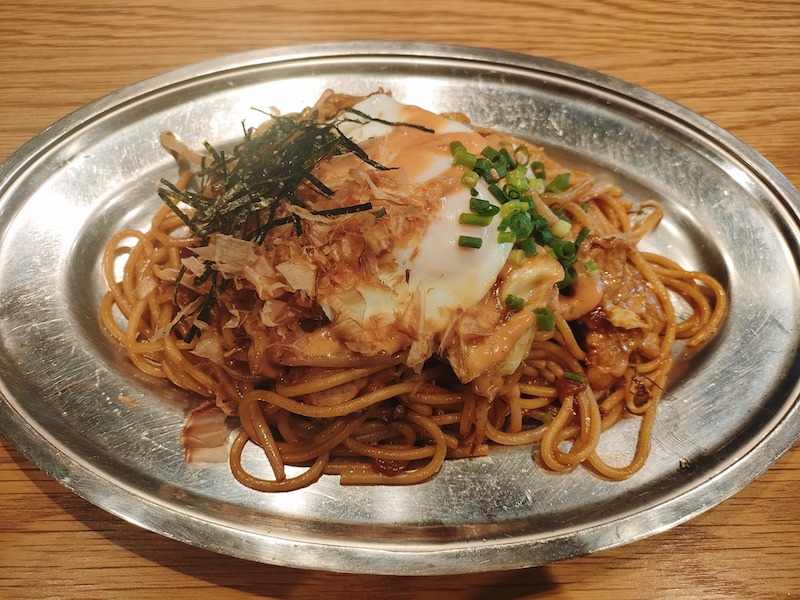
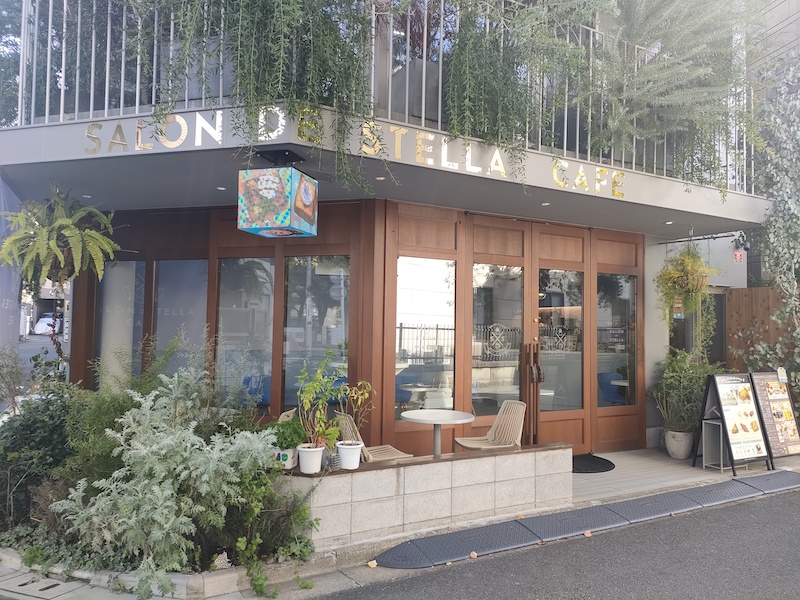
 The experience was made even more delightful by the owner’s easygoing conversation. I also got to see a heartwarming interaction where boys from the nearby elementary school popped in for a quiz challenge with the owner. With its cozy atmosphere and the fact that the second floor doubles as a nail shop, it’s the kind of place where you might just find yourself staying longer than you planned.
The experience was made even more delightful by the owner’s easygoing conversation. I also got to see a heartwarming interaction where boys from the nearby elementary school popped in for a quiz challenge with the owner. With its cozy atmosphere and the fact that the second floor doubles as a nail shop, it’s the kind of place where you might just find yourself staying longer than you planned.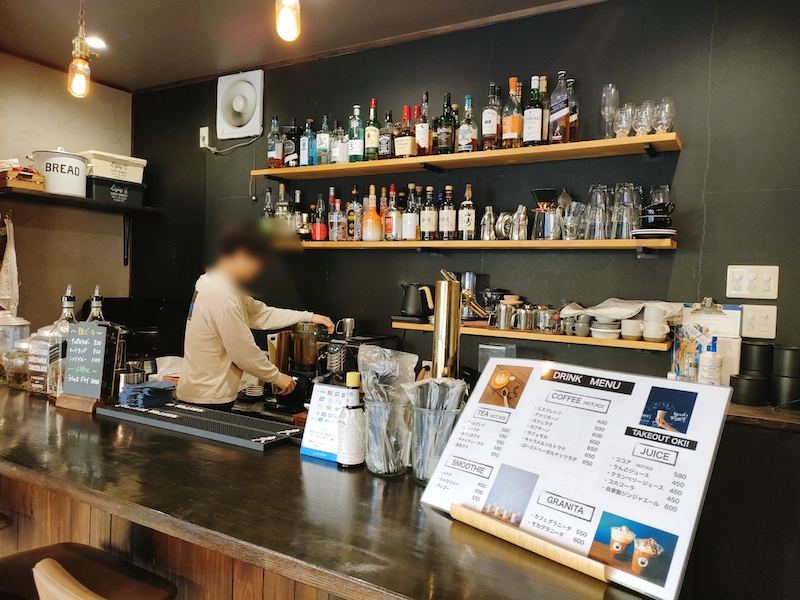
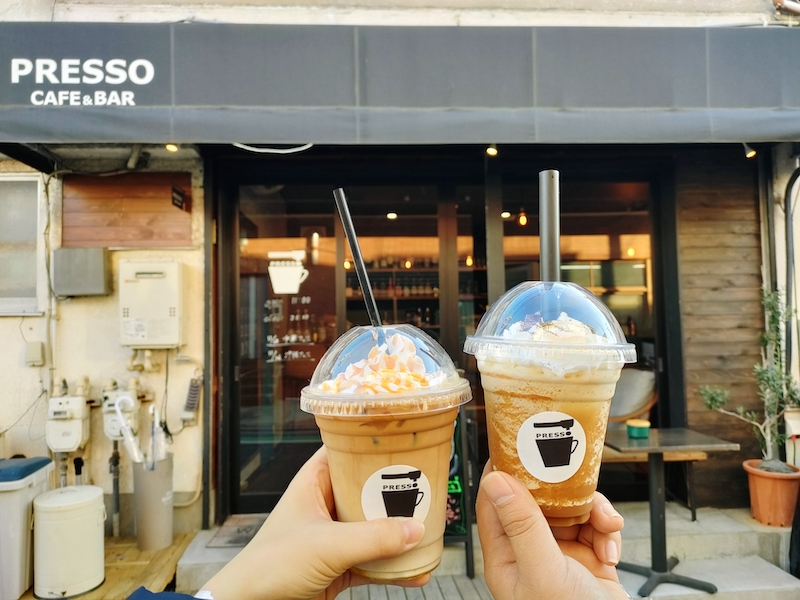

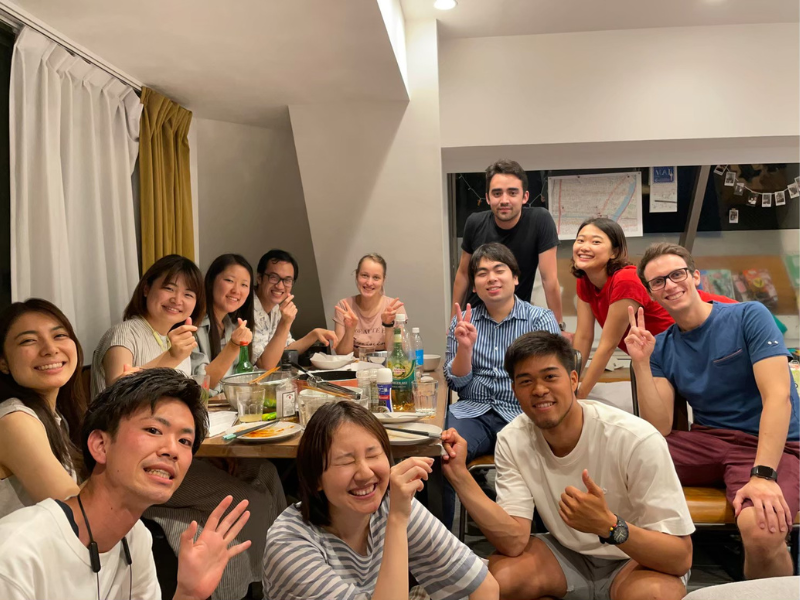
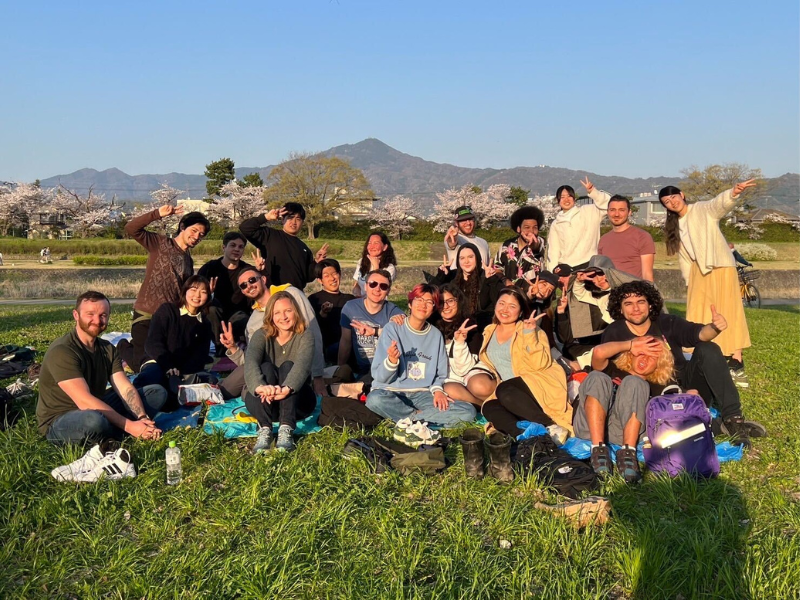
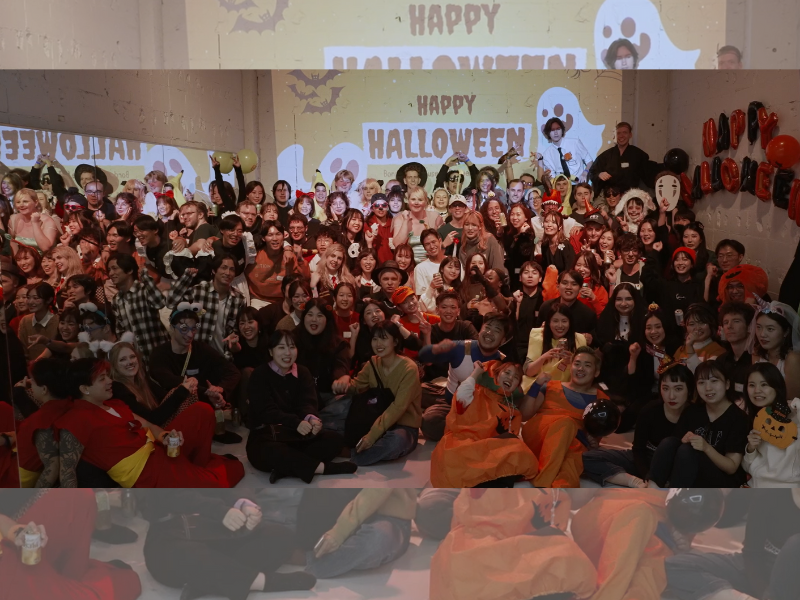
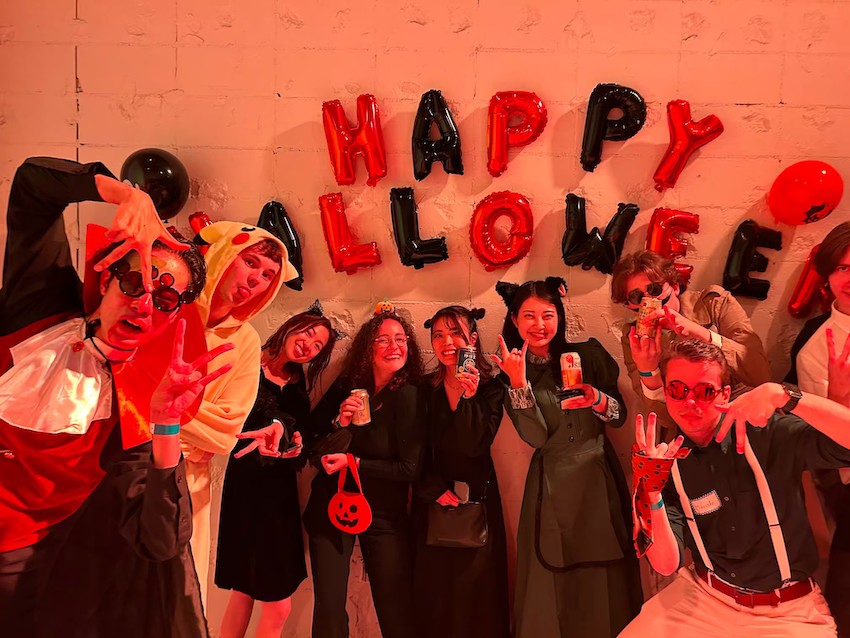






 Heart-Pounding Welcome Party” @ Borderless House Kobe-Motomachi 1
Heart-Pounding Welcome Party” @ Borderless House Kobe-Motomachi 1
 A joint bowling event was held by the Borderless Houses in Kyoto!
A joint bowling event was held by the Borderless Houses in Kyoto!


 How does the work culture at Borderless House differ from other internships or workplaces you have experienced?
How does the work culture at Borderless House differ from other internships or workplaces you have experienced?



